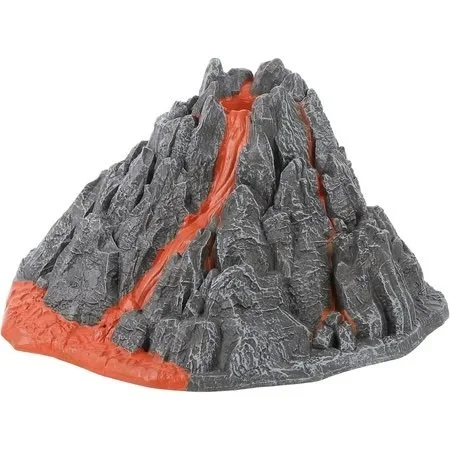Tropes weaponize everything.
/So why do I love them? And what exactly is a trope?
I took this Halloweeny picture yesterday after drafting this post.
It’s my writing cabin. It’s also my retreat, my bolt-hole, and my mancave (but women have caves, too, don’t they?). The pumpkins were placed there by my wife, who’s my mainstay, my anchor, my safe harbor from the storms of life.
These cabin and spousal manifestations are all tropes, the most powerful tools for bending souls…
NOTE: I copied this post from my Substack newsletter, Aristotle’s Guide to Soul Bending. To get twice-weekly emails on rhetoric and writing, you can subscribe for free.
Years ago, I spent some weeks studying the speeches of Democrats and Republicans to see whether I could detect distinct types of rhetoric. I found that Democrats tended to sound like John F. Kennedy, with lots of rounded periods and poetic figures of speech (“Ask not what your country can do for you…”). Republicans, on the other hand, spoke in plain, short, just-the-facts-ma’am sentences. (“You need to have boots on the ground.”) When political scientists measured audience responses to the major speeches, they found that people thought the Republicans to be more direct, more believable. That was before Trump blew up politics, of course.
Were the pre-Trump Republicans being less rhetorical? Were their speeches truly unadorned? Hardly. The Democrats used lots of figures of speech and figures of thought—clever words, singular usage, or unusual patterns of language. The Republicans, on the other hand, favored tropes. Did that make them less crafty? Well, let’s look at some good old American expressions.
When prosecutors “weaponize” justice, they’re not packing their briefs with explosives. Their opponents are deploying a hyperbolic, large-caliber metaphor.
A guy with auburn hair whom everyone calls Red is not the color red. (That’s a metonymy.)
The announcers on Saturday Night Live’s Weekend Update are not real journalists. (Irony.)
When the White House announces a policy, the actual building doesn’t say a thing; that would be creepy. (Synecdoche.)
A corporation is only a pretend person. (Personification.)
I hope it never literally rains cats and dogs. And a worker doing backbreaking labor isn’t necessarily fracturing his vertebra. (Metaphors.)
If I say my wife’s been giving me the stink-eye for hitting the bottle, that does not mean her eyeball gives off a detectable odor or that I’ve been committing acts of violence against glass containers. (Metonymies.)
Nor are we lying when we say these things. We’re slinging tropes; not literally slinging them, just (metaphorically) tossing them about. Which begs the question (not literally begs; tropes don’t beg, and in any case I’m abusing the begging the question fallacy):
What exactly is a trope?
The word comes from tropos, Greek for “a turning.” We call the Tropics the Tropics because those parts of the globe turn to follow the sun. In botany, a heliotrope is a plant with a sunny disposition that turns to follow the light.
Tropes, on the other hand, don’t turn. Instead, they turn us. Tropes are literally psychotropic; they “bend souls,” as the ancient Romans would say. Tropes twist our notion of reality. They play pretend, with scale or representation or character.
The queen of tropes, the one that gets the most airtime, is the metaphor. If you and your honey (meaning your significant other, not your container of bee excrement) gaze at the stars and you ask your lover whether he thinks the stars are God’s daisy chain, you’re throwing up a sparkly metaphor. Your lover knows that stars are massive balls of gas and not at all like the common daisy, Bellis perennis. Yet as your lover gazes up dutifully, his soul may turn a bit. Synapses fire, connecting the patterns of light with a chain of flowers. Which is why the word metaphor comes from the Greek, meaning “transfer” or “carry over.”
No harm done, except possibly to the evening’s chances of getting to third base, a metaphorical carnal achievement level that definitely should not involve bats and balls.
Other tropes are more obscure. Because we don’t know them, they can take on enormous secret powers. We’ll see their more brilliant and nefarious uses in future posts.
If you think I’m committing a hyperbole, well, hold your fire (not literally refrain from shooting, though I mean that too). Tropes compose our imagination, they constitute the living core of persuasion, and they allow us to conceive the future. They also make us do horrible things with our diet, spend billions on torturing people at the end of their lives, and make us ignore existential threats. Just one of them, personification, lies behind the AI chatbots that are helping some people and tragically hurting others.
In other words, tropes created humanity, and they just might destroy it. Seriously.
By the way: hyperbole is a trope, according to, well, me, among even more ancient experts. More on that later.
Do you still think it’s possible to speak plain, unadorned language without falling down the trope rabbit hole? (Yeah, that’s a metaphor.) Stay tuned. We’re in for a wild ride. Not a real ride, and not really wild, and none of us will actually be in anything nor does this letter require you to be for “it,” whatever that is…
You know what I’m talking about.




